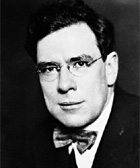Of the People, By the People
“I am hurt.
A plague o’ both your houses! I am sped.”
-Mercutio, Romeo and Juliet, III
There’s something downright un-American about doubting the value of democracy…but it was not the dream of the nation’s founders. Rather, the Constitution assures that our government is not a pure democracy, but a representative one. As you’ll recall, Publius (James Madison) explains why in Federalist No. 10: pure democracy, by promoting the will of the majority, quashes the rights of the minority: “A common passion or interest will be felt by a majority, and there is nothing to check the inducements to sacrifice the weaker party. Hence it is, that democracies have ever been found incompatible with personal security or the rights of property; and have, in general, been as short in their lives as they have been violent in their deaths.”
And so we have Congress. The Tea Party and the President are hardly the first to be frustrated with the workings of that august body, whose approval rating in a recent Gallup poll was 10%. In 1933, in the depths of the Depression, Maxwell Anderson took dead aim at the gentlemen (and women) of the House to show how even the most honorable and idealistic were inevitably corrupted by a system that runs on graft, gambling, and influence peddling without regard for either the national interest or a sense of fair play. In Anderson’s incisive and ironic portrayal, it would be unethical not to be unethical.
Bridge to Nowhere
When Alan McClean, freshman representative from Nevada, joins the House Appropriations committee, his first order of business is to challenge a bill to build a dam in his own district. Even though his own constituency stands to gain, he knows that, at $40 million ($694 million in today’s dollars), its cost is too high. So he is shocked (shocked!) to find that committee negotiations, instead of lowering the expense, attach earmarks to run the cost up to $200 million ($3.47 billion, today.) Our hero, committed to reform, and armed with a secret that gives him powerful leverage with his new colleagues, takes a new tack: he can freight the bill with so much pork it will sink under the load and expose the whole corrupt system. But the DC novice is not ready for consequences he invites, neither the political nor the personal. This fast-paced political satire was a West Wing of the 1930’s and hits just as close to home in this election year.
The play takes flight on stage thanks to Anderson’s biting wit and recognizable but novel characters. He evokes a Congressional committee debate with the snap and crackle of backroom poker game. A fiercely intelligent and lyrical writer, most famous for his verse plays, his version of Washington patois is both inspired writing and one-liner funny. The committee given his words includes a slick hustler, a curmudgeonly wit, a patient but compromised sage, a tireless suffragette, and a handful of workaday opportunists. When McClean confronts this claque, the result is stage delight: an ironic comedy filled with sincere outrage.
But what makes the play penetrate is what underlies the satire: Anderson’s touching humanity. He presents a very funny but very real quandary, and when the stakes are no longer one man’s principles but another man’s life, the messy business of government by the people is brought out of the theoretical and into the heart. And yet, sentiment cannot rule the day in service to the public, can it?
When, in the course…
The play’s inspiration was the construction of the Boulder Dam (you’ll know it under its new hame: Hoover.) An ambitious and contentious project, the dam arrested national attention from its inception in 1931 to its completion in 1935. By opening night, Hoover was out, and the formerly Republican house had gone decisively Democratic, but Anderson is neither overly topical, regional, nor even obviously partisan. The party allegiances of the characters are never given and the president is a distant figure.
It is the process that is the brunt of the joke. Today, amidst vigorous debate over the Federal government’s role in supporting or strangling the economy; an earmark “ban” impeding, but not stopping, regional appropriations; and the public good itself a matter of debate, Both Your Houses is hardly an historical curiosity. When McClean utters his final warning: “It takes about a hundred years to tire this country of trickery—and we’re fifty years overdue right now,” the challenge he throws down resonates deeply…80 years farther past his expiration date.
Metropolitan’s 21st season is devoted to “The American Dream”, and we are delighted to begin with a play that interrogates one of its founding institutions.
– Alex Roe
 James Maxwell Anderson (1888 – 1959), born in Northwest Pennsylvania, took his BA in English Literature at University of North Dakota and an M.A. in English from Stanford. Until 1924, he worked variously as a high school and college teacher, and as a journalist for both local papers and national publications, including The New Republic.
James Maxwell Anderson (1888 – 1959), born in Northwest Pennsylvania, took his BA in English Literature at University of North Dakota and an M.A. in English from Stanford. Until 1924, he worked variously as a high school and college teacher, and as a journalist for both local papers and national publications, including The New Republic.
The run of his first play, in verse, White Desert (1923) was short lived, but it caught the attention of critic Laurence Stallings, and the two collaborated on1924’s prose comedy What Price Glory? This cynically unromantic picture of soldiers in WWI launched Anderson’s extremely successful career in writing plays of literary merit and social consciousness. His next was the popular disection of a marriage, Saturday’s Children (1927). He returned to verse with successful historical dramas Elizabeth the Queen (1930) and Mary of Scotland (1933), and then in Winterset (1935), inspired by the Sacco and Vanzetti trials, and High Tor (1936), about a battle over quarrying on the Hudson River palisades, both of which earned him New York Drama Critics Circle Awards. Other works include Knickerbocker Holiday (1938 with Kurt Weill), satirizing FDR and his New Deal legislation; Key Largo(1939); The Eve of St. Mark (1942); Joan of Lorraine (1946); Anne of the Thousand Days (1948); Lost in the Stars (1949 – scored by Weill); and The Bad Seed (1954) adapted from William March’s novel. Additionally, he adapted many works of his own or others into successful screen plays, including Death Takes a Holiday, All Quiet on the Western Front, and Joan of Arc (with Ingrid Bergman).
Additional awards include a Gold Medal in Drama from the National Institute of Arts and Letters, and honorary doctorates from Columbia University of North Dakota.
Following a stroke, Anderson died in Stamford, CT, at age 70.
